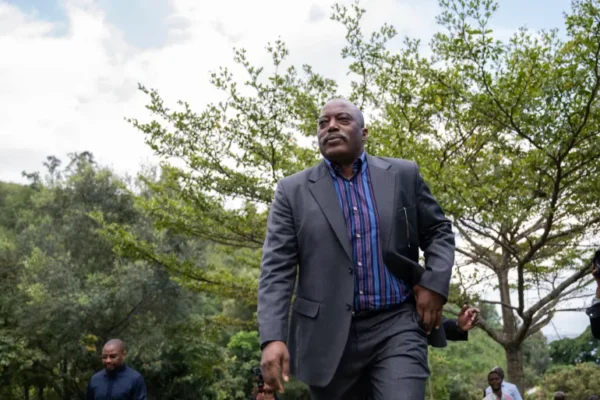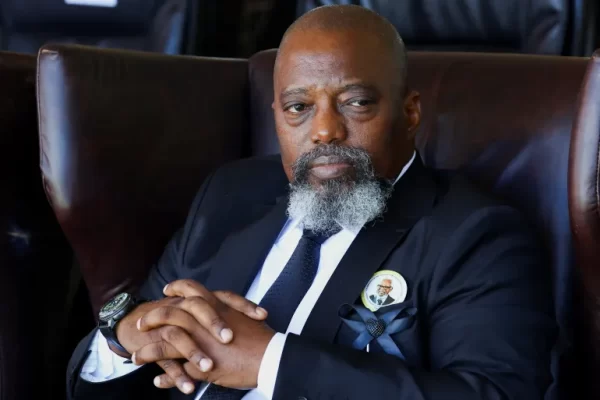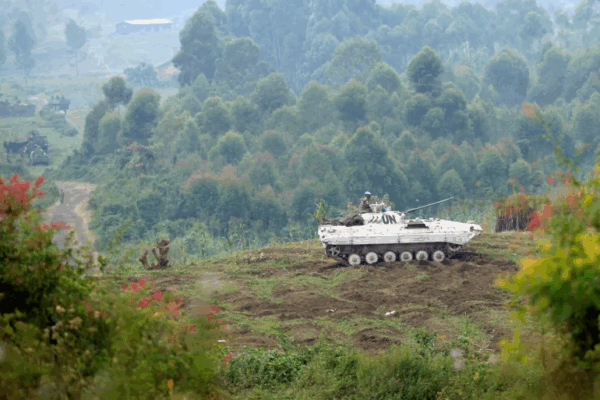
Former DRC President Joseph Kabila Sentenced to Death in Absentia for Treason War Crimes
Kinshasa, Sept 30, 2025 – A military tribunal in the Democratic Republic of the Congo has sentenced former President Joseph Kabila to death in absentia, convicting him of treason, murder, torture, and crimes against humanity. Presiding over the case, Lieutenant General Joseph Mutombo Katalayi said the tribunal applied Article 7 of the Military Penal Code, which mandates the death penalty for the most serious crimes. The sentencing follows a months-long trial that began in July 2025, during which Kabila was tried for his alleged involvement with the M23 rebel group, which has seized large parts of eastern DRC this year. “In applying Article 7 of the Military Penal Code, it imposes a single sentence, namely the most severe one, which is the death penalty,” said Katalayi. Kabila, who ruled the DRC from 2001 to 2019, has not been present in court and was not represented by legal counsel. He left the country in 2023 but resurfaced earlier this year in Goma, a city now controlled by M23 rebels. His current whereabouts remain unknown. Accusations of Rebellion and War Crimes The court found Kabila guilty of supporting M23 — a group widely believed to be backed by Rwanda, despite Kigali’s repeated denials. United Nations experts have reported that the Rwandan military played a “critical” role in the group’s resurgence. Charges against Kabila also included insurrection, sexual assault, and the orchestration of mass atrocities, including torture and rape — all linked to ongoing violence in eastern DRC. Kabila had previously dismissed the trial as a “political witch hunt”, claiming the judiciary was being used as an “instrument of oppression” by the current administration under President Félix Tshisekedi. Political Ramifications and Reactions The sentencing follows a controversial move by the DRC Senate in May 2025 to lift Kabila’s immunity from prosecution. Many observers believe the verdict is politically motivated, aimed at preventing Kabila from mobilising the opposition ahead of upcoming elections. “This sentencing could make Kabila’s supporters feel that this trial is politically driven,” said Yinka Adegoke, Africa editor at Semafor, in an interview with Al Jazeera. “He has his own power base and no longer serves the interests of the current government.” Despite the court’s ruling, Kabila’s arrest remains unlikely. He may still appeal the verdict through the Court of Cassation, though only on procedural grounds. The death penalty was reinstated in the DRC last year, ending a decades-long moratorium, but no executions have yet been carried out. Regional Tensions and International Scrutiny Kabila’s sentencing comes amid fragile peace efforts in the region. A Congolese-Rwandan peace agreement was brokered in Washington in June, followed by a ceasefire declaration with M23 in Qatar in July. However, violence continues across eastern DRC, where NGOs and UN investigations have documented serious human rights abuses by all sides. A recent UN report concluded that multiple actors in the conflict may have committed war crimes and crimes against humanity, fueling calls for accountability and renewed international attention.



